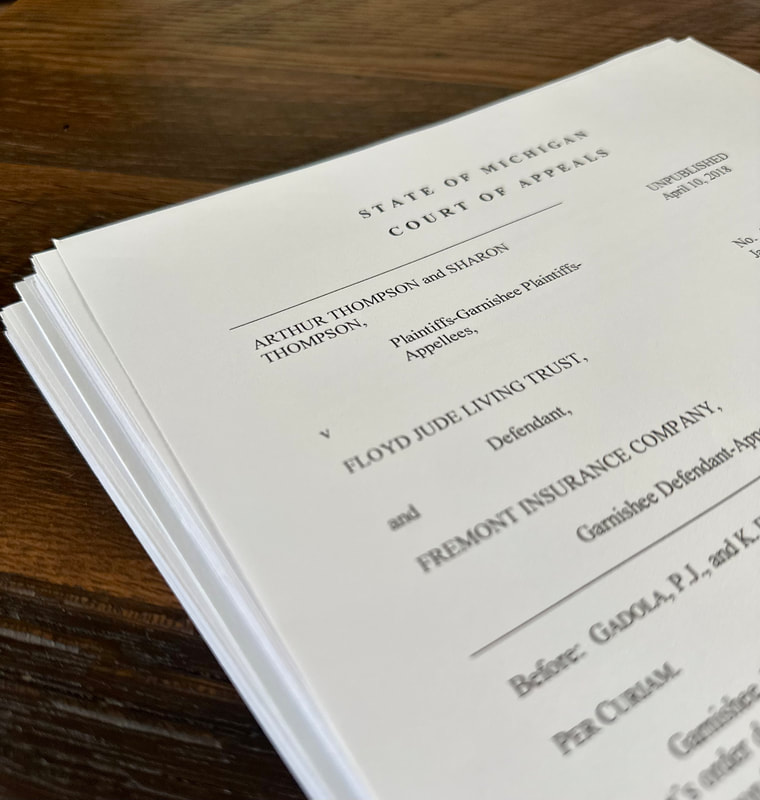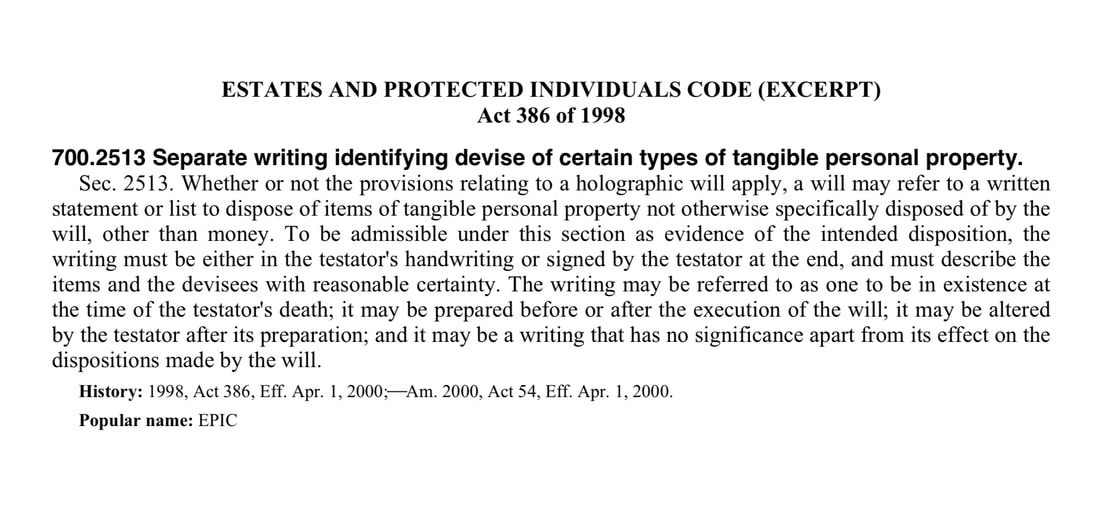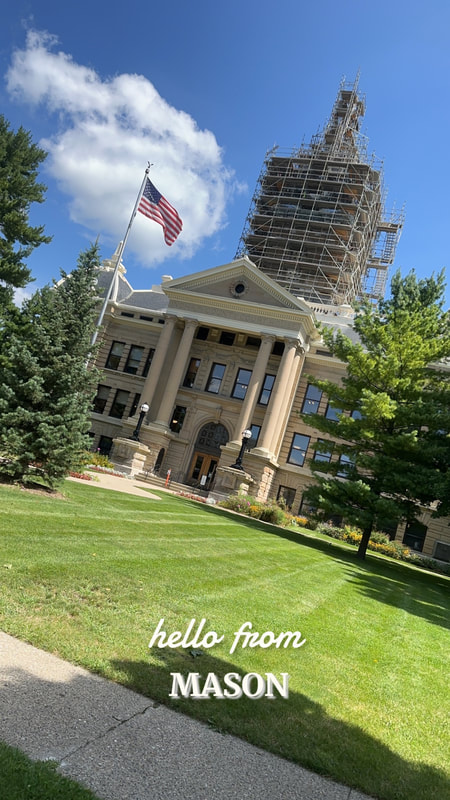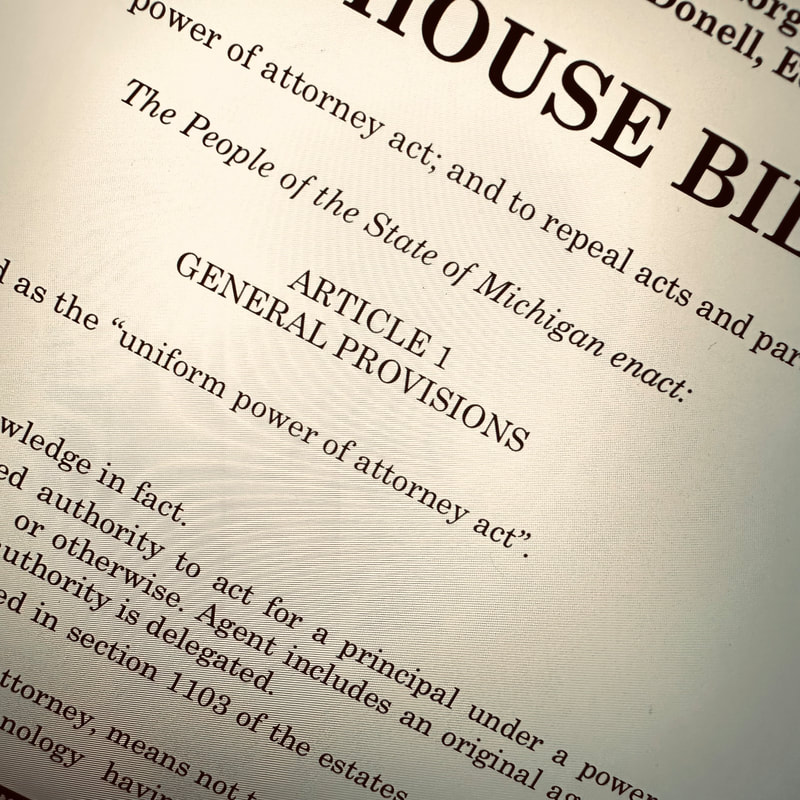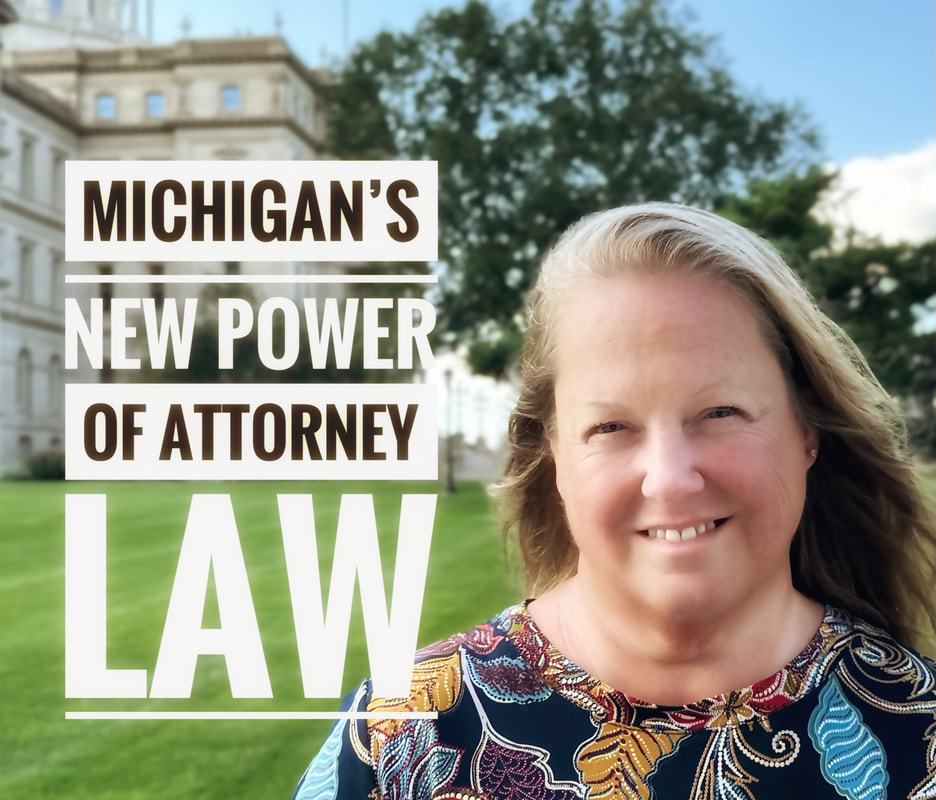“PLEASE MAKE MY TRUST AN ADDITIONAL INSURED PARTY ON MY HOMEOWNER’S INSURANCE POLICY”The case revolved around a Jackson County family. The owner transferred ownership of his home to his living trust and later died. Following the owner’s death, the premiums were paid, renewing the policy.
At some point during the trust administration, family members gathered at the home to divide the decedent’s personal belongings. One relative, checking to be sure an exterior door was locked, fell through a staircase and was injured. The trial court determined that Fremont Insurance Company was required to pay the claim for damages, but the Michigan Court of Appeals reversed. The Michigan Court of Appeals determined that the insurance policy was like a contract, and the parties to the contract were determined by the policy documents. At the homeowner’s death, the insurance company no longer had an obligation to pay, despite the fact that the premiums had been kept up to date. The court ruled that the trust was not an insured party under the insurance policy. How to avoid this result? Be sure to name your trust as an additional insured party on your homeowner’s insurance. Call your insurer today and be sure your trust is an insured party. You simply need to say: “Please make my trust an additional insured party on my homeowner’s insurance policy.” If you aren’t sure if your trust is named as an additional insured party, just call your insurance agent and ask. This is something you must do. Insuring your trust property is your responsibility. It is very unlikely that anyone did this for you at the time your trust was established. Please doublecheck to be sure your trust is an additional insured party on your policy every year and whenever you change insurance companies.
0 Comments
ON THE ROAD AGAIN WITH JO ANNE HINDSAfter delivering drafts of documents to clients in Lake Odessa before the start of Labor Day Weekend, I pulled in to the little parking area near Veteran’s Memorial Chapel and took this picture of Jordan Lake on Snapchat.
Look at all of the colors in the trees already! Where has summer gone? If you haven’t visited the Village of Lake Odessa, you should definitely make the trip sometime. Enjoy the adorable little beach - find some great vintage decor at the antique stores and be sure to stop by Meyer’s Bakery on 4th Avenue. They were honored with the title of “Michigan’s Best Donuts” by MLive in 2020. Have a Safe and Happy Labor Day Weekend! WHO GETS MY STUFF?Examples of tangible personal property include:
Tangible personal property does not include money. The word “tangible” refers to personal property that is touchable or physical as opposed to “intangible” assets such as shares in a business or stock evidencing only by a stock certificate. The word “personal” delineates the property from real property which is real estate or land. *Note regarding firearms: NFA items can cause special concern in estate administration. More information about NFA items will be included in a future blog post. Why is it called tangible personal property?The word “tangible” refers to personal property that is touchable or physical as opposed to “intangible” assets such as an interest in a partnership or shares of stock. The word “personal” delineates the property from real property which is real estate or land. I WANT TO LEAVE MY WEDDING RING TO MY DAUGHTER.You may have heard how other people have dealt with gifts of tangible personal property at death. I know I have heard quite a few stories - some with good endings, some not so good. It is not surprising that the division of tangible personal property at death can cause hurt feelings and family disputes. Being treated unfairly upon the distribution of a loved one’s belongings can be very painful. To avoid this, some clients go so far as to direct a trustee or personal representative to “JUST SELL IT ALL!!!” Michigan law does provide a solution, and it does not include the ever popular “sticky notes” attached to the bottom of your heirloom furniture! You have the right under the law to create a list that specifies gifts of certain items of tangible personal property. The list can be changed from time to time. Only the most recently dated gift of an item will be valid. So, to leave my wedding ring to my daughter, Michigan law provides that I can leave a handwritten note (or if not handwritten by me, then a note signed by me at the end) that states that I want my daughter to receive my wedding ring. PLEASE NOTE: the list MUST be referred to in YOUR WILL for this to hold up in court. If you don’t have a will, or if your will does not contain a provision referring to a possible statement or separate list of gifts of tangible personal property, this will not work. Here are some suggestions:
Let me know if I can helpI have over 30 years experience preparing wills and trusts and I would be happy to help you! Hiring an attorney to prepare your estate plan provides you with trusted legal advice. A will is not just a simple form you can buy online. Be sure your estate plan is done right.
COMING SOON!Coming soon, an online course you can take on your own time, based on a popular series of estate planning seminars and workshops that I’ve developed over the years. Formerly offered only in person through local adult and community education programs in locations such as Grand Ledge, Okemos, Rockford, Stockbridge, Delta Township, Perry, Holt and more, these popular classes filled quickly. Not intended as legal advice, course topics started with the presumption that the participant already had a trust. The two part series started with “Part One: So you have a trust, now what?” The second session was entitled “Part Two: What your successor trustee needs to know about your trust.” Participants were encouraged to invite their successor trustee and adult children to the class to open a dialogue between the generations on the topic of estate planning.
On the road with jo anne hinds
With historic architecture, restaurants, coffee shops, vintage and antique stores and ice cream, Courthouse Square is a fun place to spend an afternoon. And while you’re downtown, don’t miss a visit to one of my favorite places - Michigan Barnwood and Salvage - just a few blocks away. Definitely worth a visit!
My clients are often surprised that I don’t charge extra for making house calls, but I wouldn’t have it any other way. The benefits of being “on the road” and getting to know all of these great people in their own hometowns makes it all worthwhile. I am thankful for the opportunity to visit clients across the state and especially for my clients in Mason, Michigan. It was a beautiful day to drive to Mason yesterday and in addition, I am enjoying an amazing chef salad I brought from Klavon’s for my lunch today! She said that the bank would not let her use the power of attorney without appropriate identification. Her valid Michigan driver’s license provided her married name and new address. She told me that she even tried to present a copy of her marriage license to the bank as proof of her identity.
Banks and other institutions, concerned they may be sued if they accept a power of attorney that turns out to be fraudulent have imposed their own set of internal rules about document acceptance, and consumers had little or no recourse without going to court. The new Uniform Power of Attorney Act, signed into Michigan law last fall and effective in Michigan as of July 1, 2024, provides a remedy. The law states that a person or business asked to accept an acknowledged power of attorney under the UPOAA may request and may rely, without further investigation, upon an affidavit providing statements of factual matters signed by the agent or attorney, or a written opinion letter from an attorney regarding applicable matters of the law. To stop the banking industry from requiring such affidavits or opinion letters from everyone before accepting a valid and acknowledged power of attorney, there are protections afforded Michigan residents by the UPOAA. To avoid unnecessary requests, the law provides for payment of attorney fees and costs if the request is frivolous. Michigan’s Uniform Power of Attorney Act (UPOAA) was signed into law last fall, but the law went into effect just last month on July 1, 2024.
If you already have a power of attorney signed before July 1, 2024, there is no reason to be concerned that your power of attorney will become ineffective under the new law, as long it was legal under the laws of Michigan at the time it was signed. What is a power of attorney? A power of attorney is a document that provides certain powers to another individual to act on your behalf. Many individuals create “durable” powers of attorney, which are effective even in the event of your incapacity. These durable powers of attorney have become an important part of many typical estate plans. Without a durable power of attorney, your loved ones may have to go to court to be appointed as your conservator if you should become incapacitated. Generally speaking, the UPOAA is far more detailed than Michigan’s prior law on powers of attorney. This is the first time that Michigan law has specified what an agent can and cannot do on your behalf. Although the powers available under the UPOAA are very broad, an agent does not have the right to give gifts, make changes to a living trust, change rights of survivorship, create or change beneficiaries, delegate powers and more unless those restricted powers are specifically authorized by you in the document. Follow this blog for more information about Michigan’s Uniform Power of Attorney Act (UPOAA) and other recent changes in the law that might have an impact on your estate plan. |
